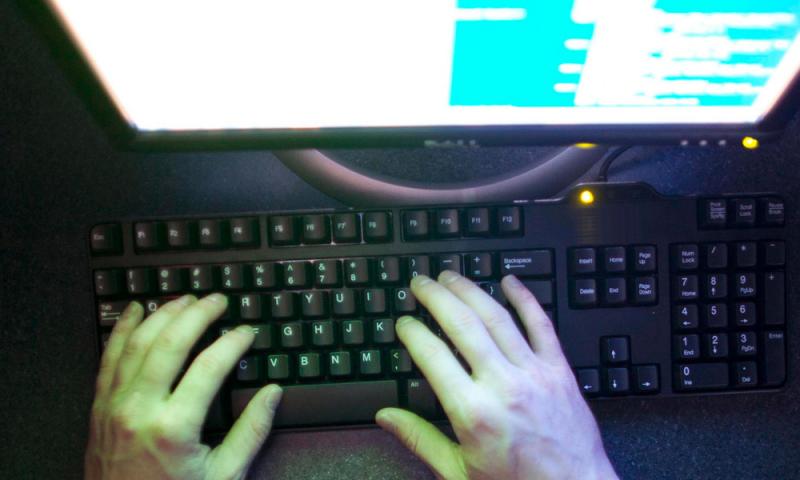MP SPEAKS | There's a great need for cyberbullying law
MP SPEAKS | I refer to the article carried in Malaysiakini dated Sept 19, 2020, titled “Putrajaya to decide on cyberbullying law soon” and wish to reiterate my stand that there is a great need for cyberbullying law to be introduced soonest.
According to Tan Chuan Ou, the deputy secretary-general in the Multimedia and Communication Ministry at the online launch of Unicef’s “Our Lives Online - Use of Social Media by Children and Adolescents in East Asia” he stated that there was “no clear protocol” for reporting cyberbullying in Malaysia but opined that the Malaysian Penal Code and the Communications and Multimedia Act 1998 (CMA) were “enough” to deal with such “incidents”.
I find this poor logical reasoning as, while admitting a lacuna on laws to criminalise cyberbullying, he is also “defending” current weak and loose laws that allow for cyberbullies to face the long arm of the law.
In my royal address speech in Parliament on July 28, I had stressed for new laws to address the rising incidences that have led to suicide attempts and even suicides, particularly after a young girl took her life in Bukit Mertajam, Penang in May this year as a result of vulgar, nasty comments by a Facebook user, "Jocker Oruvan", who is still not arrested to date.
Why was he so brazen to insult the victim like this and to stubbornly refuse to remove his defiant post? What made others do the same, joining in to bully the victim and spread lies about her? Is it due to the lack of acceleration by the enforcement officers, the Malaysian Communications and Multimedia Commission (MCMC) and the Attorney-General to investigate, charge and convict cyberbullies as other high-profile cases? Or is it because there is a vacuum or a lack of a specific set of laws to make nabbing and prosecuting cyberbullies which will be easier for PDRM and MCMC to act upon?
Multimedia and Communications Minister Saifuddin Abdullah replied that Multimedia University is in collaboration with the ministry in conducting a study on cyberbullying, including an awareness campaign on online consumer rights in Malaysia. He stated by year-end the result will be out. I interjected that while it is good for research to be carried out, there is already evidence that Malaysia needs new sets of laws specific to cyberbullying. He stated his support and would update further.

It is not only on the shoulders of the Multimedia and Communications Ministry alone but also the Home Ministry, Youth and Sports, Women, Family and Community Development, Prime Minister’s Department as well as the Education and Higher Education ministries.
In an oral reply given to my parliamentary question dated July 27, 2020, and Aug 3, 2020, and Pandan MP Wan Azizah Wan Ismail, the ministry stated that from the period of January to June 2020, the MCMC had received a total of 11,235 complaints covering a range of cyber offences such as hacking, gambling, promoting prostitution, exposing official documents, harassment, cyberbullying, distributing pornography, of imposters and sharing personal pictures and fake news, and hate speech towards race, religion, extremism and insulting royalty.
From the 143 cases that had been investigated under Section 233 of the MCMC Act on the misuse of social media, only seven have been brought to court which is less than one percent. There is no mention of those investigated under the Penal Code and no news if they were convicted or acquitted.
According to a Unicef report, “28 percent out of 6953 young people in Malaysia, through a poll, claimed to be victims of online bullying, with 43 percent of them experiencing it through online games and private messaging and social media apps including Facebook, Instagram, WhatsApp, YouTube and Twitter.
Cyberbullying exists in low- and high-income countries and it is the joint responsibility of the government, internet service providers and online users as well, weeding out those who propagate hate speech and cyberbullying as well as those who are victims of it.
In times of a pandemic of this scale, more people including youths will spend more time online and exposing themselves to vile characters online including cyberbullies and sexual predators.
We must seriously ask ourselves, “Are our laws sufficient to protect our children? Are our laws sufficient to protect us?”
While waiting for the Multimedia University to present their findings if Malaysia needs cyberbullying laws or not, I urge the government not to rest on its laurels, and to conduct public town hall style hearings through webinars, using social media to gauge and engage for themselves the opinion, responses, feedback, constructive criticisms and suggestions by parents, ISP providers, social media giants and civil society on what would entail in such a law.
I also urge the government and the Parliament speaker not to delay the setting up of Parliamentary Select Committees or All-Party Parliamentary Groups to address cyberbullying for an overall collective opinion pool.
It is clear that existing laws are insufficient and new laws on cyberbullying are needed as well as stringent enforcement and courageous, learned, astute and compassionate judges who we all greatly rely on being advocates and defenders in upholding the rule of law.
KASTHURI PATTO is Batu Kawan MP and international secretary for DAP Women.
The views expressed here are those of the author/contributor and do not necessarily represent the views of Malaysiakini.
RM12.50 / month
- Unlimited access to award-winning journalism
- Comment and share your opinions on all our articles
- Gift interesting stories to your friends
- Tax deductable
